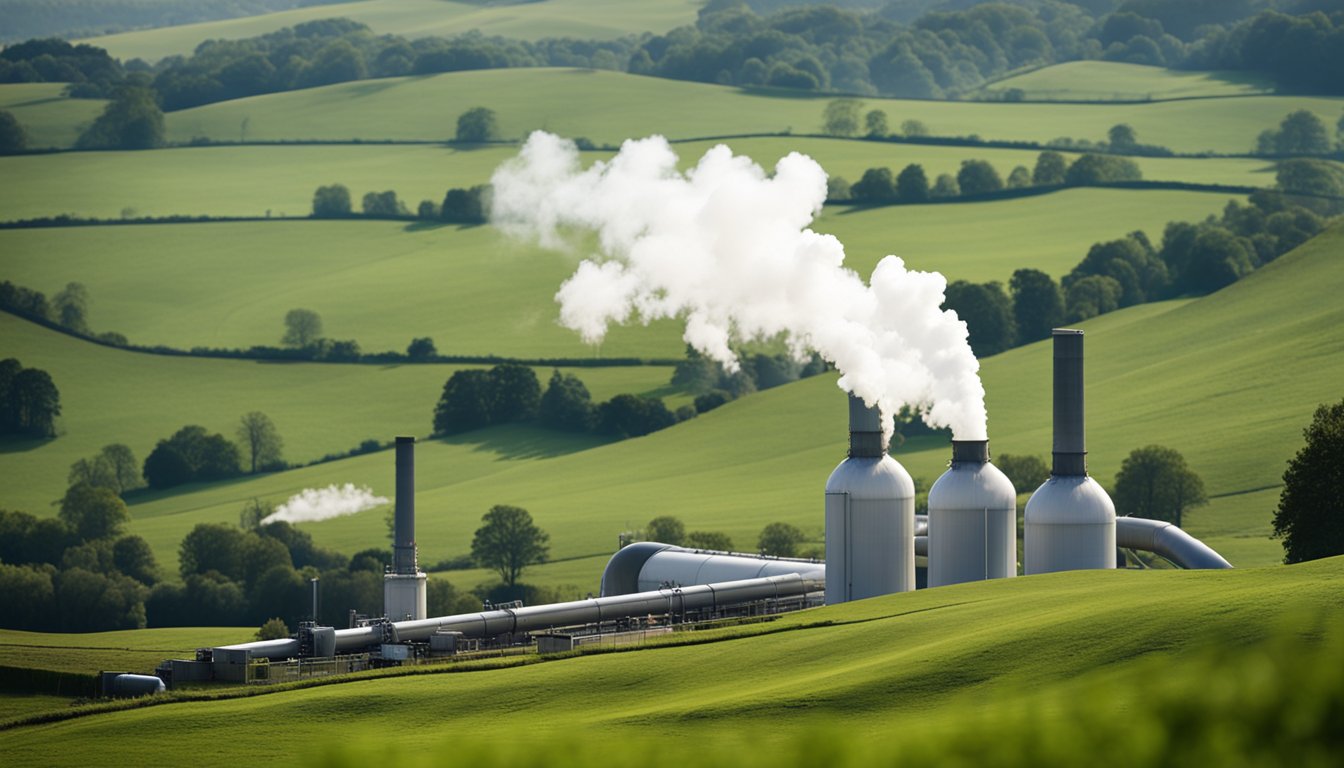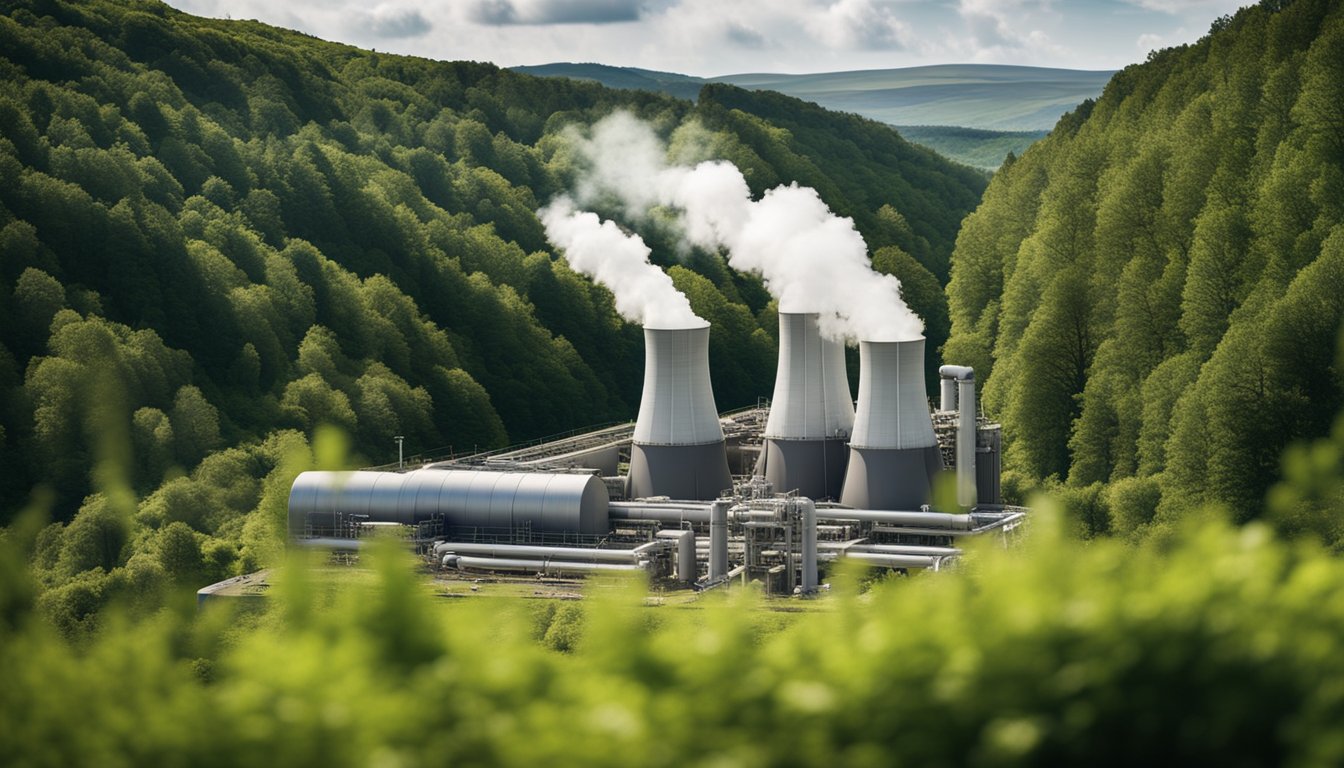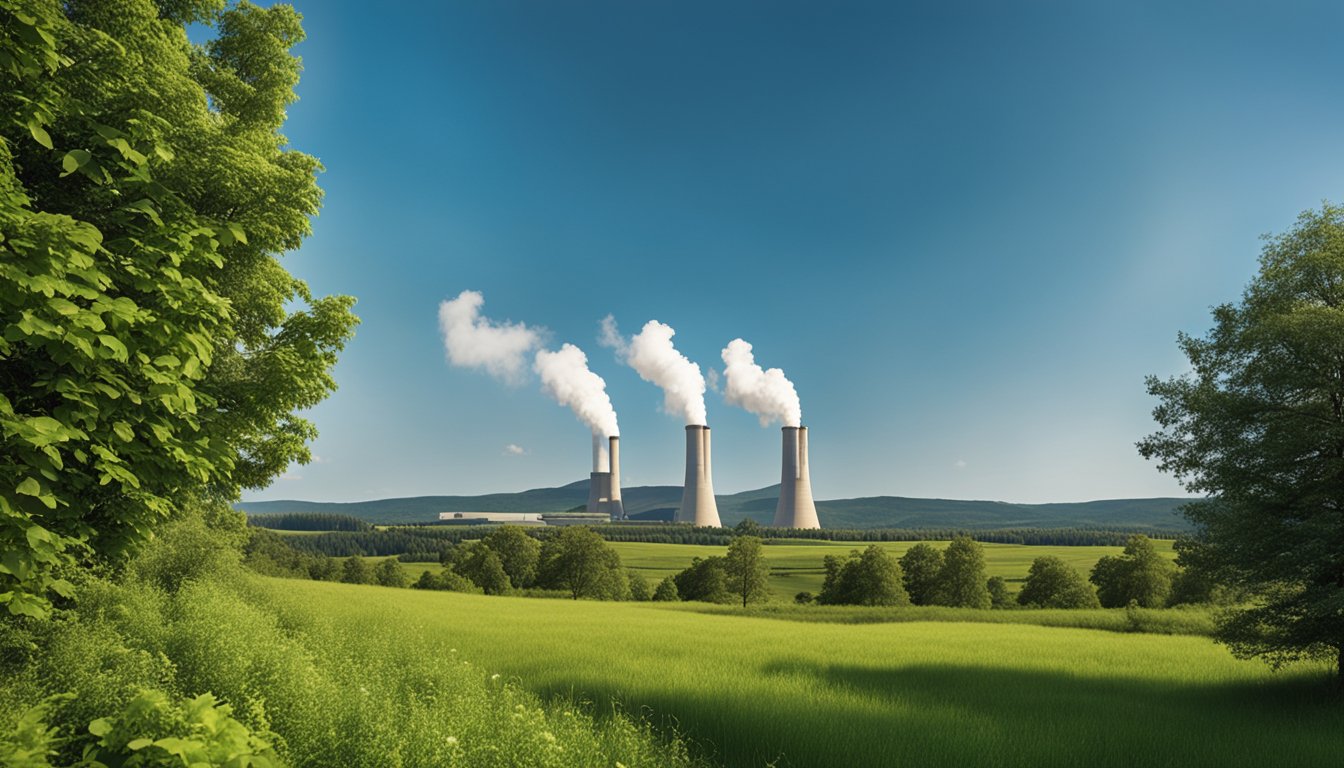Late updated: 05 Nov 2024 09:11
Written by: Eleanor Hartman
Benefits of Geothermal Energy in the UK: A Sustainable Future Solution
Geothermal energy is emerging as a key player in the United Kingdom's transition to a sustainable and secure energy future. Harnessing the Earth's heat from beneath our feet, geothermal energy offers a reliable and renewable solution to the pressing challenges of climate change and energy security. This energy source promises significant environmental benefits and the potential creation of green jobs across the UK.

As we strive towards our net zero objectives, geothermal energy stands out for its ability to provide a low-carbon source of heating, cooling, and power generation. It makes economic sense too, with opportunities to enhance energy resilience and decentralise power systems in many regions. The UK has been exploring geothermal potential through various projects, aiming to replicate the success seen in other European countries. Such initiatives not only contribute to our decarbonisation efforts but also bolster our energy supply security, offering economic and social advantages.
Incorporating geothermal solutions aligns with our commitment to reducing carbon emissions while boosting local economies through job creation. It's essential for us to understand the role this energy source plays in shaping a cleaner and more sustainable environment.
Key Takeaways
- Geothermal energy offers a low-carbon and renewable solution for the UK's energy needs.
- It supports net zero goals by providing environmental and economic benefits.
- Geothermal projects can create green jobs and enhance energy security.
Geothermal Energy Potential and Projects in the UK
The UK is exploring its geothermal potential to address energy needs and sustainability goals. Key projects and the involvement of major organisations like the British Geological Survey (BGS) are essential in harnessing geothermal resources.
Exploring the UK’s Geothermal Landscape
The geothermal energy landscape in the UK comprises both shallow and deep geothermal resources. Shallow geothermal energy often involves low-grade heat for direct use. Conversely, deep geothermal energy provides more potential for power generation and significant heating applications, particularly in regions with accessible hot sedimentary basins and heat-producing granites.
These geological features are predominantly present in areas such as the Humber and the southwest. Ongoing research by organisations like UK Research and Innovation focuses on assessing specific sites and estimating potential outputs, aimed at meeting the UK’s carbon-neutral objectives.
Current Geothermal Projects and Developments
Significant geothermal projects are underway, contributing to the UK's energy diversity. The recent switch-on of the UK's first deep geothermal energy project in decades marks a milestone. This project utilises geothermal fluid extracted from deep underground reservoirs.
Some developments also involve using disused wells and mines to tap into geothermal resources. Organisations strategically deploy these projects to satisfy regional heating requirements and reduce dependence on fossil fuels. Such initiatives are pivotal for energy security and economic benefits, creating a framework for future expansion of the geothermal industry.
The Role of BGS and Governmental Bodies
The British Geological Survey (BGS) plays a crucial role in studying the geothermal potential of various locations in the UK. By providing indispensable geological insight, BGS enables the identification of promising geothermal systems. Additionally, governmental bodies, including the Department for Energy Security and Net Zero, offer vital support for geothermal exploration.
Through evidence-based policymaking and funding, these institutions encourage investment in the geothermal sector, fostering the development of sustainable energy projects. Government support also highlights the commitment to meeting net-zero targets, driving innovation and progress across the geothermal energy landscape in the UK.
Economic and Environmental Impacts of Geothermal Energy

Geothermal energy holds significant promise for the UK, offering a sustainable path for economic growth, reducing carbon emissions, and fostering job creation. By exploring its potential, we can address crucial environmental and economic challenges.
Achieving Economic Growth through Geothermal Investment
Investment in geothermal energy can stimulate economic growth through diverse channels. By harnessing the power of geothermal plants and ground source heat pump (GSHP) systems, we can enhance energy efficiency while providing a reliable, low-carbon energy source. This investment creates opportunities for economic benefits, such as cost savings from reduced reliance on imported fuels and increased energy supply security.
Geothermal energy projects often face high initial costs. However, strategically directed funds, like the UK Community Renewal Fund, can serve as an economic stimulus. This boosts local economies while supporting the advancement of modern geothermal technologies. Such investments are essential in developing district heating networks and integrating geothermal power more widely within the UK.
Reducing Carbon Emissions and Climate Impact
Geothermal energy serves as a key player in decarbonising heating and reducing the UK's overall carbon and greenhouse gas emissions. Unlike fossil fuels, geothermal provides a renewable and continuous heat energy source with minimal environmental impact. The exploitation of natural thermal gradients and subsurface permeability ensures a steady supply of heat energy for residential and industrial uses.
Geothermal heating systems significantly contribute to achieving climate goals by providing low-carbon energy solutions. By incorporating geothermal energy into the mix, we can move closer to a sustainable energy future. The regulatory system must support these efforts by facilitating the growth of geothermal power generation and ensuring environmental safeguards are in place.
Creating Jobs and Promoting Sustainable Communities
The development of geothermal energy infrastructure is a fertile ground for job creation and the promotion of sustainable communities. As geothermal projects expand, they generate a variety of jobs, ranging from research and development to technical and administrative roles. This job generation is crucial for supporting local economies and provides an opportunity for skill development.
By fostering a workforce skilled in geothermal technologies, the UK can enhance its competitiveness in the global renewable energy market. Economic benefits from geothermal investments extend beyond immediate job creation. They include sustainable community development, increased renewable energy literacy, and resilience to energy price fluctuations, which collectively contribute to a more sustainable future.
Frequently Asked Questions

Geothermal energy offers a sustainable alternative for power generation in the UK. We explore its advantages, methods of utilisation, renewability, limitations, and future prospects.
What are the primary advantages of utilising geothermal energy for power generation?
Geothermal energy supplies a consistent and reliable power source. It has a low carbon footprint, aiding in the reduction of greenhouse gas emissions. This renewable source enhances the UK's energy security by decreasing dependency on fossil fuels.
Can you outline both the benefits and drawbacks of geothermal energy deployment?
Geothermal systems contribute to local economies by creating jobs and developing infrastructure. Yet, initial installation costs can be high, and suitable locations are geographically limited. Environmental concerns, such as potential land subsidence and water contamination, require careful management.
In what manner is geothermal energy harnessed for electricity production?
Geothermal energy is captured by drilling wells into geothermal reservoirs. Heat from the Earth's core is accessed and converted into steam, which drives turbines connected to electricity generators. This process efficiently transforms geothermal energy into power.
Could you confirm whether geothermal energy is considered a renewable resource?
Yes, geothermal energy is inherently renewable. The Earth's internal heat is continuously replenished, making it an inexhaustible energy source, provided that extraction rates are managed sustainably to ensure long-term availability.
What are the potential limitations or downsides of implementing geothermal energy systems?
Geothermal projects often require significant upfront investment and risk assessment. The geographical availability of suitable sites may limit widespread use. Furthermore, there can be environmental concerns related to drilling operations and resource management.
What does the future hold for geothermal energy development in the UK?
The UK has promising potential for increased geothermal energy adoption. Initiatives are focusing on overcoming initial cost barriers and expanding suitable site identification. By investing in geothermal expansion, the UK can boost its renewable energy capacity and progress towards net-zero targets.